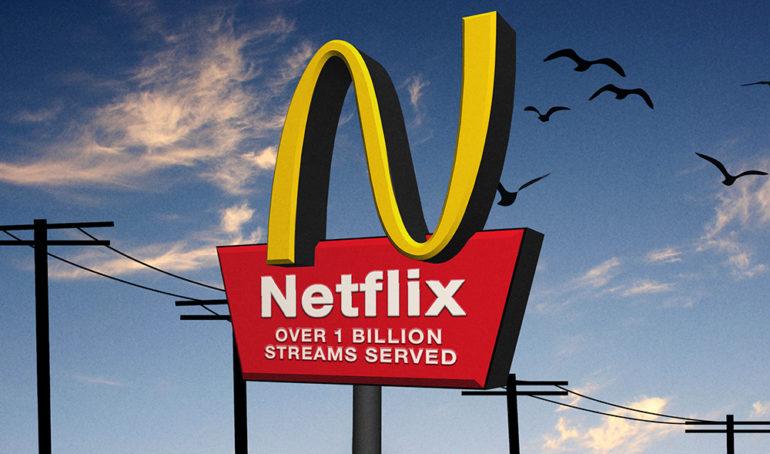Does Netflix Have a Brand Problem?
By Andrew Wallenstein
LOS ANGELES (Variety.com) – When newly appointed WarnerMedia Entertainment chairman Robert Greenblatt took a swipe at his biggest competitor in the streaming space last week, telling NBC News that Netflix lacked a brand and was akin to Encyclopedia Brittanica, he might have done well to recall what happened to one of his corporate predecessors back in 2010. That was when former Time Warner CEO Jeffrey Bewkes was quoted likening the possibility of dominating the entertainment industry to “the Albanian army taking over the world.”
Bewkes ended up mistaking a behemoth in the making for an also-ran. Will Greenblatt will come to regret his own words, too?
At first blush, his statement seems off base; how can one find fault with Netflix’s brand if…well, it’s Netflix, dammit! The outsize success of the streaming service would seem to be proof positive that its brand is doing just fine, thank you very much. Its stature on the pop culture landscape right now is like nothing Hollywood has ever seen.
When he made the Brittanica comparison, Greenblatt also characterized Netflix as “just a place you go to get anything.” What he seems to be implying here is that the perception of Netflix among consumers is less the result of any kind of carefully cultivated market positioning and more an outgrowth of the sheer tonnage of its content.
Greenblatt explain his perspective a bit further when he said of ’s own upcoming streaming service, “We have our collection of assets, and I think we can put them together in a way that’s really compelling.”
Taken all together, Greenblatt’s comments create a clear point of contrast: The Netflix brand is a collection of assets that has no identity beyond its sprawling catalogue. WarnerMedia’s, on the other hand, is going to artfully amalgamate its own content in such a way that it will project a fully realized brand, something greater than the sum of its content parts.
Greenblatt isn’t the only one who seems to be thinking along these lines. His former colleague at NBCUniversal, Jennifer Salke, said something similar to the Hollywood Reporter last month in her new capacity as the top exec at Amazon Studios, another Netflix rival: “We don’t want our customers to have an endless scroll. We want to be much more curated and pointed about what we’re putting up on the service, what we’re putting out theatrically.”
With their professed faith in the curated approach, Salke and Greenblatt reveal their roots in TV, where a brand was a signpost that projected a clear differentiation from a long list of networks catering to many disparate demographics and tastes.
But they’re no longer in the traditional TV business. Now they’re in the world of streaming, where instead of hundreds of channels to define yourself against, Amazon and WarnerMedia are playing against a much smaller subset of much larger programming powerhouses whose brand identities aren’t terribly distinct from one another.
There’s something anachronistic about the notion that a limited library of content could be artfully arranged in a manner compelling enough to compete with the sheer voluminousness of the Netflix catalogue. While TV branding may have been like putting together a nice bouquet, Netflix-era branding is more akin to loading a machine gun.
Crude as Netflix’s approach may seem to branding sophisticates, there’s nothing wrong with Netflix relying on the brute force of its vast output.
And it’s perfectly fine for the streaming giant to have nothing more to say as a brand than “we are all things to everyone” because its algorithmic magic allows lots of different kinds of audience segments together inside its broad tent to carve out their own personalized experiences.
Perhaps in that respect Brittanica, which conjures up the anachronism of dusty old print volume sitting on a shelf, is a pretty baseless comparison to make to a company as unquestionably innovative as Netflix is.
Greenblatt is taking Netflix’s greatest strength—its scale—and attempting to spin it as a negative. If he really wanted to nail the company for mindless mass production, maybe he would have been better off comparing Netflix to McDonald’s, corporate America’s standard bearer for high-quantity mass production, right down to the iconic “billions served” sign.
Now it’s on Greenblatt to prove he can capitalize on Netflix’s branding weakness to WarnerMedia’s own gain. Or maybe he’s just misunderstanding the market he needs to win over.
In what was most probably a coincidence, Netflix just happened to see its CMO, Kelly Bennett, announce his departure from the company just days after Greenblatt made his comment. If Bennett’s replacement starts to take the streaming company’s marketing in a very different direction, maybe Greenblatt was right after all.

